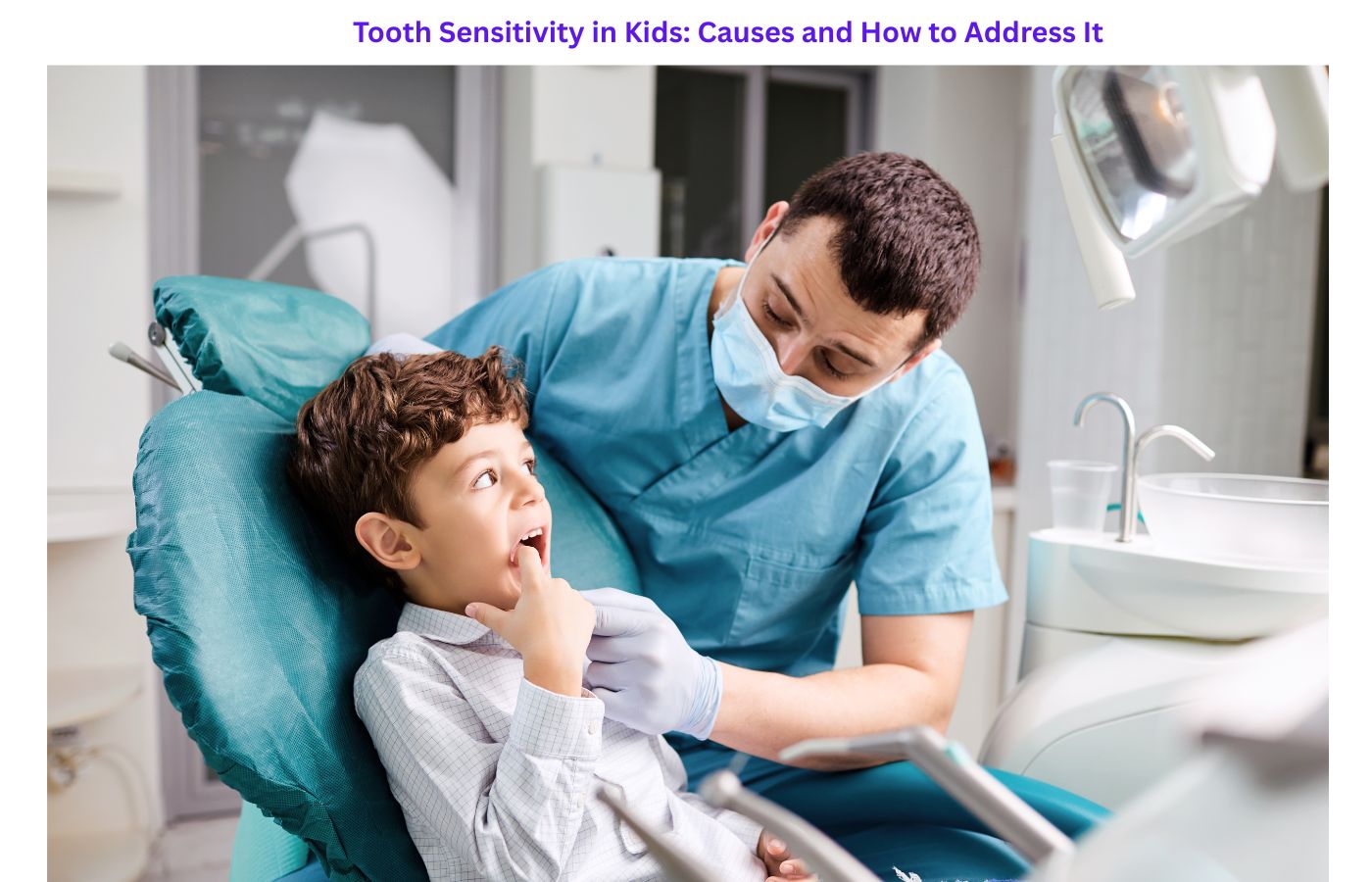
Tooth sensitivity is a common issue that can cause significant discomfort, especially for children. It’s an issue that many parents may not immediately notice, but it can lead to pain and frustration for your little ones. As kids grow, their oral health becomes an important aspect of their overall development, and addressing issues like tooth sensitivity early on can make a big difference. In this blog, we’ll explore the causes of tooth sensitivity in children and offer advice on how to address it through proper kids dental care.
Tooth sensitivity in children refers to discomfort or pain in the teeth when they are exposed to certain stimuli, such as cold or hot foods, sweet or acidic items, or even cold air. Sensitive teeth can cause sharp, shooting pain, making it uncomfortable for kids to eat or drink certain things.
There are various factors that could contribute to children’s tooth sensitivity. Some of the most common tooth sensitivity causes include:
Tooth enamel is the hard, protective outer layer of the tooth. It helps shield the sensitive inner layers from exposure to hot, cold, or acidic foods. When the enamel erodes due to poor dental habits, acidic foods, or even brushing too hard, it can leave the underlying dentin exposed, leading to sensitive teeth in kids.
2. Teething:Young children, especially toddlers, can experience sensitivity as their baby teeth come in. The discomfort from new teeth breaking through the gums can cause some pain and sensitivity.
3. Cavities or Tooth Decay:Tooth decay is another leading cause of tooth sensitivity. Cavities in the teeth can cause pain when exposed to different temperatures or foods. If left untreated, cavities can worsen, leading to more severe discomfort.
4. Gum Recession:If a child’s gums pull away from the teeth due to aggressive brushing, gum disease, or poor oral hygiene, the roots of the teeth can be exposed, leading to sensitivity.
5. Dietary Habits:Kids who consume sugary, acidic, or very hot or cold foods and drinks might experience heightened sensitivity. Consuming these types of foods regularly can wear down tooth enamel, contributing to the issue.
6. Dental Treatment:After certain dental procedures, such as fillings, crowns, or cleanings, a child might experience temporary sensitivity. This is common but should go away once the healing process is complete.
If you suspect that your child may be suffering from tooth pain in children due to sensitivity, look out for these signs and symptoms:
To help manage tooth sensitivity in kids and ensure their comfort, here are a few steps you can take to provide effective tooth sensitivity treatment and prevent further complications:
The first step in addressing children’s tooth sensitivity is scheduling regular visits to a kids dentist. A pediatric dentist specializes in treating young patients and is well-equipped to diagnose and treat dental issues such as tooth sensitivity. A dentist will be able to pinpoint the underlying cause of your child’s sensitivity and suggest the most appropriate treatment.
2. Use Toothpaste for Sensitive TeethThere are several toothpaste brands specifically designed for sensitive teeth, including some that are safe for kids. These types of toothpaste contain compounds that help block the pathways that lead to pain. They can be beneficial for children suffering from sensitive teeth and help protect the enamel while providing relief.
3. Encourage Proper Oral HygieneOne of the best ways to prevent and treat tooth sensitivity is through consistent and effective oral hygiene. Teach your child how to brush gently with a soft-bristled toothbrush. Avoid hard brushing or scrubbing, as this can damage the enamel and lead to gum recession. Daily brushing and flossing can keep the teeth clean and free of plaque, which can worsen sensitivity.
4. Monitor Their DietMake sure to limit the intake of sugary, acidic, or very cold foods and drinks, as these can exacerbate tooth sensitivity. Encourage your child to drink plenty of water throughout the day and opt for healthier, less acidic snacks. If your child enjoys acidic fruits or beverages, have them rinse with water afterward to help neutralize the acidity.
5. Use Fluoride TreatmentsFluoride is known for strengthening tooth enamel and helping to prevent decay. Many pediatric dentists offer fluoride treatments, which can help reduce tooth sensitivity and make teeth more resistant to cavities. Your dentist can recommend fluoride treatments or even fluoride varnishes that may be suitable for your child.
6. Consider a Night GuardIf your child grinds their teeth at night (a condition known as bruxism), it can contribute to enamel wear and tooth sensitivity. A night guard can help prevent damage to the teeth and reduce discomfort caused by grinding. Talk to your kids dentist about custom-fitted night guards designed to protect your child’s teeth.
7. Follow Up with Regular Dental CheckupsRegular checkups are essential in preventing and managing sensitive teeth. At each visit, your dentist will monitor your child’s teeth and ensure that any issues, such as cavities or enamel erosion, are addressed promptly. Routine visits help ensure your child’s teeth stay healthy and minimize the risk of developing more severe dental problems in the future.
Tooth sensitivity in kids is a common yet manageable issue. With proper care, attention, and the help of a kids dentist, most children can find relief from sensitive teeth and avoid long-term dental issues. Understanding the tooth sensitivity causes and taking proactive steps to address them can help ensure that your child enjoys a lifetime of healthy, happy smiles. By following the right kids dental care routine and seeking the appropriate dental treatment for kids, you can alleviate tooth pain in children and ensure their oral health is always a priority.